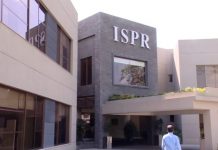DM Monitoring
VIENNA: The European Union on Monday put forth a “final” text to revive the 2015 Iran nuclear deal as four days of indirect negotiations between US and Iranian officials wrapped up in Vienna, a senior EU official said.
The official said no further changes could be made to the text, which has been under negotiation for 15 months, and he said he expected a final decision from the parties within a “very, very few weeks.”
“Today we are tabling a text that is the final text,” the senior EU official, who spoke on condition of anonymity, said at a briefing in Vienna. “This text is not going to be further negotiated or changed.”
A U.S. State Department official said that Washington was ready to quickly reach an agreement to revive the deal, formally called the Joint Comprehensive Plan of Action (JCPOA) on the basis of the EU proposals.
Iranian officials, however, suggested that they did not regard the EU proposals as final, saying they would convey their “additional views and considerations” to the European Union, which coordinates the talks, after consultations in Tehran.
Iran and six major powers struck an agreement in 2015 under which it agreed to restrict its nuclear program to make it harder to use it to develop atomic weapons – an ambition it denies – in return for relief from U.S., EU and U.N. sanctions.
In 2018, then U.S. President Donald Trump ditched the deal and reimposed harsh U.S. sanctions designed to choke off Iran s oil exports, its major source of export income and government revenue.
In response, Tehran – which says its nuclear program is for power generation and other peaceful purposes – began about a year later to breach the agreement in several ways, including rebuilding stocks of enriched uranium.
Sunday, Iranian Foreign Minister Hossein Amir-Abdollahian said, in a phone conversation with UN Secretary-General Antonio Guterres, that Iran does not seek possession of nuclear weapons,.
“Nuclear weapons have no place in the doctrine of the Islamic Republic of Iran and are contrary to our policies and beliefs,” Amir-Abdollahian was quoted by the ministry’s website as saying.
“The supreme leader’s fatwa about the use of nuclear weapons is clear for everyone,” he said, referring to the religious decree of Iran’s Supreme Leader Ali Khamenei which bans the possession and use of weapons of mass destruction including nuclear weapons.
He stressed the implementation of all aspects of the Nuclear Non-Proliferation Treaty, a landmark international treaty that pursues nuclear disarmament, adding the establishment of a nuclear weapons-free zone in the Middle East should be given serious attention, for which Iran is ready for cooperation.
Regarding the ongoing negotiations in Vienna on reviving the 2015 nuclear deal, he said while Iran has been serious about reaching a “strong and stable agreement,” the outcome of the talks also depends on Washington’s “willingness for an agreement,” as well as its “necessary flexibility and realism in practice.”
Amir-Abdollahian urged the International Atomic Energy Agency (IAEA) to avoid politicizing the technical aspects of Iran’s nuclear program in a bid to resolve remaining issues over the application of IAEA safeguards in Iran.




